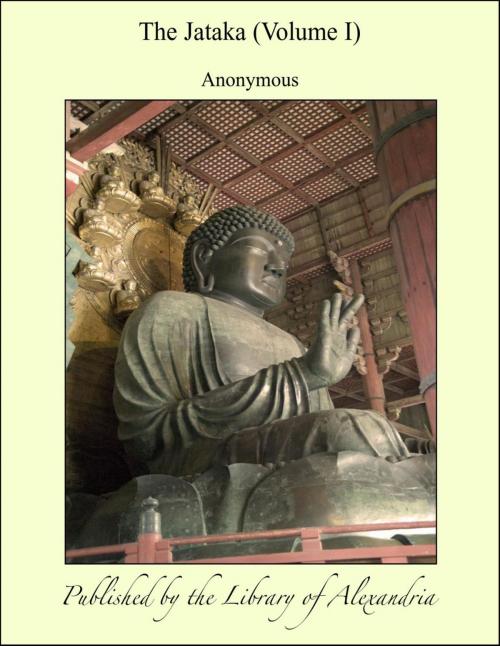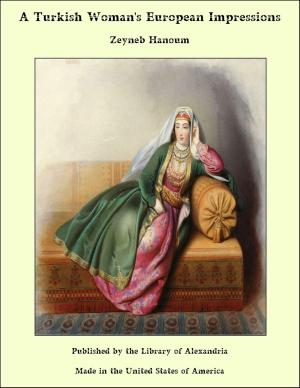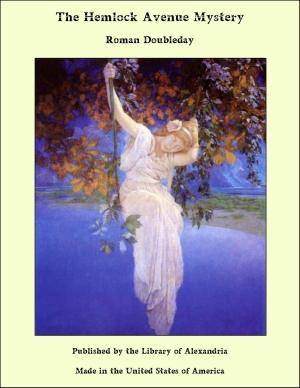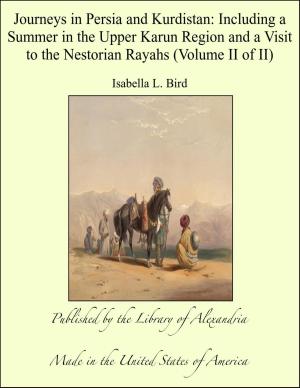| Author: | Anonymous | ISBN: | 9781465573124 |
| Publisher: | Library of Alexandria | Publication: | March 8, 2015 |
| Imprint: | Language: | English |
| Author: | Anonymous |
| ISBN: | 9781465573124 |
| Publisher: | Library of Alexandria |
| Publication: | March 8, 2015 |
| Imprint: | |
| Language: | English |
IT was an almost isolated incident in Greek literary history, when Pythagoras claimed to remember his previous lives. Heracleides Ponticus relates that he professed to have been once born as Æthalides, the son of Hermes, and to have then obtained as a boon from his father ζντα κα τελευτντα μνήμην χειν τν συμβαινόντων. Consequently he remembered the Trojan war, where, as Euphorbus, he was wounded by Menelaus, and, as Pythagoras, he could still recognise the shield which Menelaus had hung up in the temple of Apollo at Branchidæ; and similarly he remembered his subsequent birth as Hermotimus, and then as Pyrrhus, a fisherman of Delos. But in India this recollection of previous lives is a common feature in the histories of the saints and heroes of sacred tradition; and it is especially mentioned by Manu as the effect of a self-denying and pious life. The doctrine of Metempsychosis, since the later Vedic period, has played such an important part in the history Of the national character and religious ideas that we need not be surprised to find that Buddhist literature from the earliest times (although giving a theory of its own to explain the transmigration) has always included the ages of the past as an authentic background to the founder's historical life as Gautama. Jātaka legends occur even in the Canonical Piakas; thus the Sukha-vihāri Jātaka and the Tittira Jātaka, which are respectively the 10th and the 37th in this volume, are found in the Culla Vagga, vii. 1 and vi. 6, and similarly the Khandhavatta Jātaka, which will be given in the next volume, is found in the Culla Vagga v. 6; and there are several other examples. So too one of the minor books of the Sutta Piaka (the Cariyā Piaka) consists of 35 Jātakas told in verse; and ten at least of these can be identified in the volumes of our present collection already published; and probably several of the others will be traced when it is all printed. The Sutta and Vinaya Piakas are generally accepted as at least older than the Council of Vesāli (380 B.C.?); and thus Jātaka legends must have been always recognised in Buddhist literature.
IT was an almost isolated incident in Greek literary history, when Pythagoras claimed to remember his previous lives. Heracleides Ponticus relates that he professed to have been once born as Æthalides, the son of Hermes, and to have then obtained as a boon from his father ζντα κα τελευτντα μνήμην χειν τν συμβαινόντων. Consequently he remembered the Trojan war, where, as Euphorbus, he was wounded by Menelaus, and, as Pythagoras, he could still recognise the shield which Menelaus had hung up in the temple of Apollo at Branchidæ; and similarly he remembered his subsequent birth as Hermotimus, and then as Pyrrhus, a fisherman of Delos. But in India this recollection of previous lives is a common feature in the histories of the saints and heroes of sacred tradition; and it is especially mentioned by Manu as the effect of a self-denying and pious life. The doctrine of Metempsychosis, since the later Vedic period, has played such an important part in the history Of the national character and religious ideas that we need not be surprised to find that Buddhist literature from the earliest times (although giving a theory of its own to explain the transmigration) has always included the ages of the past as an authentic background to the founder's historical life as Gautama. Jātaka legends occur even in the Canonical Piakas; thus the Sukha-vihāri Jātaka and the Tittira Jātaka, which are respectively the 10th and the 37th in this volume, are found in the Culla Vagga, vii. 1 and vi. 6, and similarly the Khandhavatta Jātaka, which will be given in the next volume, is found in the Culla Vagga v. 6; and there are several other examples. So too one of the minor books of the Sutta Piaka (the Cariyā Piaka) consists of 35 Jātakas told in verse; and ten at least of these can be identified in the volumes of our present collection already published; and probably several of the others will be traced when it is all printed. The Sutta and Vinaya Piakas are generally accepted as at least older than the Council of Vesāli (380 B.C.?); and thus Jātaka legends must have been always recognised in Buddhist literature.















